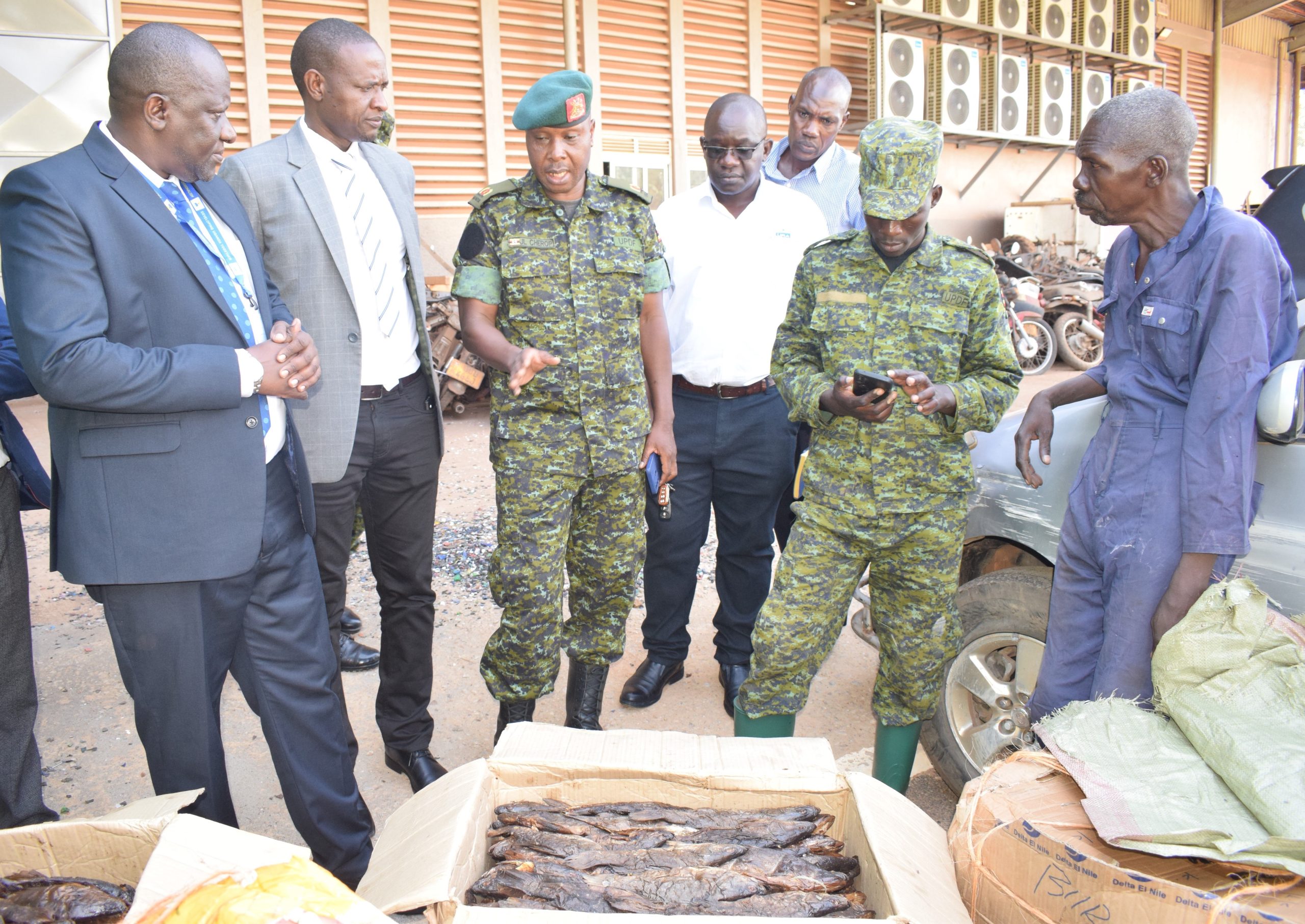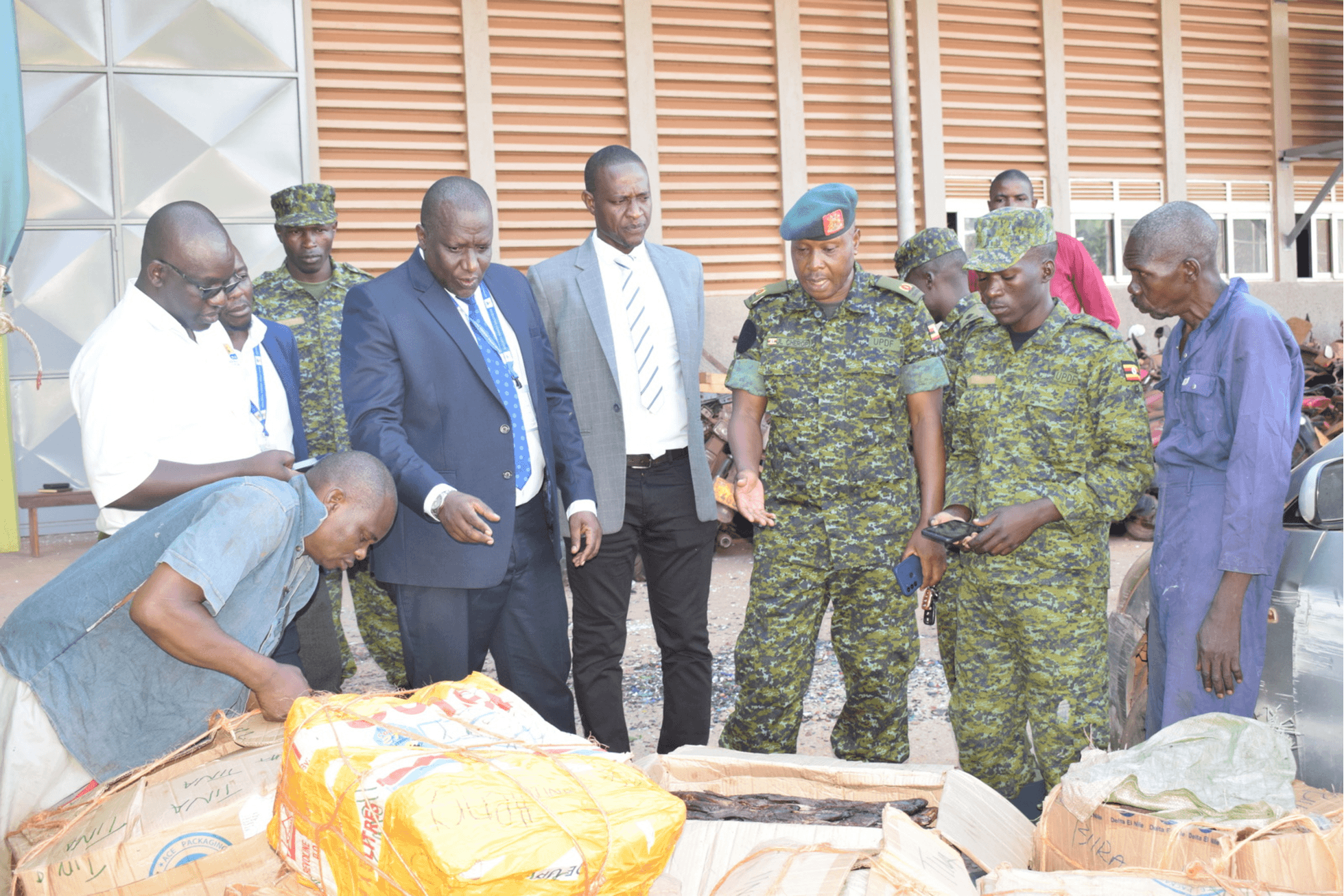
Customs’ role in protecting the environment is firmly founded in various global multilateral environmental agreements (MEAs), regional conventions, and action plans.
During a routine enforcement surveillance along Jinja Road on May 12, 2024, the Uganda Revenue Authority’s Team One Enforcement intercepted a Toyota Wish-Registration Number UBG 280S conveying 631.4 kilograms of immature dry-smoked fish (three- months -old) believed to be in transit to Mpondwe at the Uganda-Congo Border.
Immature fish are smuggled because of their fish maw. The fish maw, also known as the air bladder, is an internal gas-filled organ that contributes to the ability of a fish to control its resilience and stay at its current water depth without wasting energy to swim. This extract is used in the making of surgical stitching threads and anesthetic drugs, among others.
Notably, the projected weight of one fish after a year is 100 kg, and an estimate of 5 to 10 pieces of fully-grown Nile perch are needed to obtain one kilogram of fish maw. With immature fish, however, about 200 to 800 pieces are needed to obtain one kilogram of fish maw.
In 2017, the President of Uganda, His Excellency Yoweri Kaguta Museveni, directed the Uganda People’s Defence Forces (UPDF) to deploy officers on Ugandan lakes to combat illegal fishing practices to protect the fish resource that was under threat of depletion.
Additionally, the Ministry of Fisheries banned the extraction of fish maw from immature Nile perch, while the Ministry of Trade, Industry, and Cooperatives banned the importation of fishing nets and related inputs to allow the restocking of mature fish and increase commercial trade in the industry.
Since then, the URA, in collaboration with the UPDF Fisheries Protection Unit and other security organs, have worked to protect Ugandan waters from illegal fishing operations on various lakes, including Victoria, Edward, George, and Kyoga.
Speaking at the handover of the interception to the UPDF Fisheries Protection Unit in Entebbe, URA’s Assistant Commissioner of Enforcement, Godson Mwesigye, appreciated the cordial working relationship between the tax body and Fisheries and reiterated the critical role of customs in protecting the world’s flora and fauna.
“I implore the UPDF to continue working and sharing intelligence with our teams on the waters, the borders, and even inland so that we can execute focused operations that yield interceptions,” he said.
Labo. J. Cherop, the UPDF Fisheries Protection Unit Entebbe-Major, applauded the efforts of the synergies and stated that the criminals face up to 8 years in prison if apprehended.
By Jacquiline Emodek





No Comments yet!